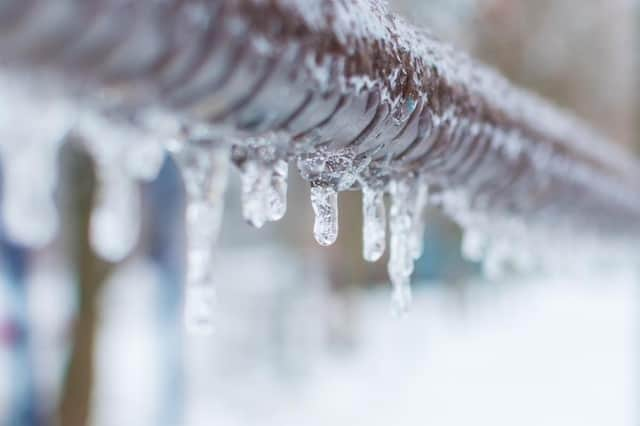Scotland's weather: How to protect home and avoid frozen pipes during winter
While many are cutting back on the amount they use central heating, some could be faced with exceptionally higher bills than their heating bill if they suffer from a frozen or burst pipe. Homes are much more likely to suffer from pipes bursting and blocking during winter.
Pipes don’t tend to freeze until around -8 degrees, but days of constant frozen temperatures can see blockages and build ups that will either damage the pipe or cause the pipe to burst once hot water runs through it once more.
Advertisement
Hide AdAdvertisement
Hide AdHouses and external pipes are significantly more likely to burst, but with many not using their central heating, it is crucial that steps are taken to try and ensure that expensive bills are avoided. Indeed frozen pipes will cause significant property damage and be extremely more costly than regularly using central heating.


Amid the cost of living crisis, a YouGov survey shows 61 per cent of people will use their heating less this winter, so here are some steps that can be taken to ensure your home is protected.
Drain water from outside pipes
To protect external pipes, drain all of the water from pipes that service outdoor water-based appliances that are not going to be used in winter. To drain water, shut off the main water connection to the relevant tap, and then allow the water to run until there is none left. You should also try to fix leaky taps, which can increase the chance of freezing
Insulate pipes
Insulate pipes and water tanks with inexpensive lagging and tank jackets, paying particular attention to areas exposed to the cold – for example, outdoor pipes and those in attics, basements and lesser-used rooms.
Use heating and heat the house
Although many will look to cut back on heating, when the heating is on, it is important to heat crucial aspects of the house, and one way of ensuring pipes don’t freeze is to opening doors to little-used rooms and cupboards where pipes are to prevent any freezing.
What to do if your pipes do freeze and what are the signs?
If taps or toilets stop working or refilling, or your boiler stops working, your taps may be frozen.
While it is important to take steps to try and prevent your pipes from freezing, here’s what you can do if your pipes do freeze.
Know where your mains water stopcock is and turn off the water – once the water is off, open the taps and then attempt to thaw the area using hot cloths or towels or a similar item like a hot water bottle.
Do not use a naked flame and do not apply strong heat directly to the area.
If there is a leak, ensure the mains water supply remains off and the water system is drained and contact your insurer